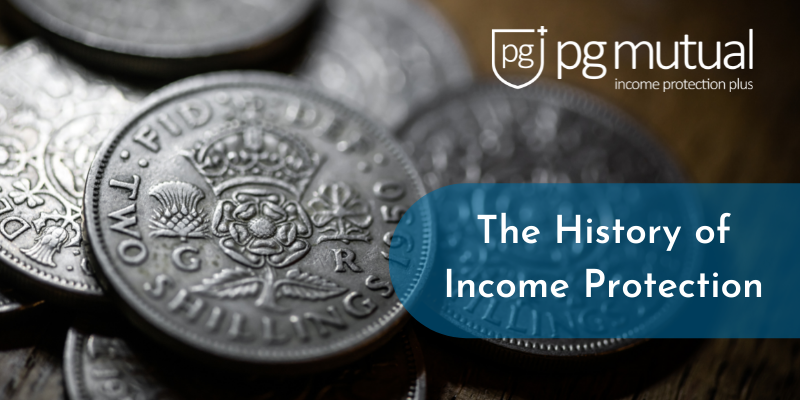The History of Income Protection

The history of income protection insurance in the UK
Income protection – one of those ideas that seems so good you could be forgiven for thinking it’s been around since, well, paid work. So how, when, and where did income protection come from? For the answer to that, we need to travel back to the 18th century.
The revolution will be industrialised
In Britain, the idea of income protection was planted firmly during the country’s Industrial Revolution. The excellent engineering age of the UK gave us such marvels as Brunel’s Clifton Suspension Bridge, the internal combustion engine, and Stephenson’s Rocket. With these icons of iron and the newly-laid train lines that carved their way across the country’s fields and pastures, the country’s landscape shifted both literally and socially. For with this seismic sea change came a healthy surge in employees.
And sure, the move towards the mechanical was a boom time for job creation. But with all those engine parts, long hours, and hard labour, the risk of work-related injury increased exponentially. The workforce needed protecting. Not just physically but financially too. So in stepped the Friendly Societies.
Who are the Friendly Societies?
Before the welfare state, there was no emergency provision for the workforce. If you couldn’t work, you couldn’t earn. To protect themselves from this possibility, local groups of employees gathered together to form a financial safety net for times of unemployment or accident. Sign up, pay in and reap the benefits should you need to. Injured and can’t work? Lost your job? Taken ill and off the payroll? The group could help.
These groups became known as friendly societies. Pockets of mutual groups dotted across the UK’s green and pleasant lands. These co-operatives differed from region to region but shared a few common traits. A sense of community. Members, not customers. People-lead initiatives that have at heart a civic-minded ethos to protect the people. It’s a shared ownership scheme that caught the government’s attention, which in 1875 sought to cement that spirit into law.
The Friendly Societies Act 1875
This Act of Parliament tied up loose ends belonging to the hundreds of friendly societies across the country: a unifying piece of legislation, legally underpinning the social movement. Requesting that friendly societies sign up to the Registrar of Friendly Societies gave income protection both a solid sense of legitimacy and an administrative framework in which to thrive. Societies and income protection could be fully audited and regulated, a move that gave the enterprise a credible boost and lawful authenticity. And it led to an enormous surge in memberships.
By the late 1800s, an astonishing 27,000 friendly societies were registered. By the 1940s, membership had soared into the millions. The post-war creation of the welfare state saw numbers decline, but the stability of insurance, benefits, and pensions associated with mutual groups have kept steady membership since.
How has income protection changed?
The upholstery may have altered a little, but the chassis remains the same. Many mutual groups have remained pretty much intact for hundreds of years.
They are now operated as companies rather than clubs, but the central tenet of social cohesion and cooperation still works within the core. Income protection operates more solidly now as an insurance policy, fully regulated by the Financial Conduct Authority and the Prudential Regulation Authority. It provides a little more stability than the gentleman’s handshake of yore.
PG Mutual is one of the remaining mutual societies. We’ve remained a not-for-profit business. We’re still led by policyholders with no external stakeholders. Any profits are distributed among our members into their profit Share Account with the aim to provide them with a lump sum at maturity.
That’s not to mention the obvious income protection element of our policy, which protects our members’ incomes against all manner of potential threats to their wage packet. Injury? Illness? Just as before, income protection has your bank balance’s back. You can claim for up to 70% of your income until you are able to return to work (or you reach age 65).
Income protection insurance has meant peace of mind for millions of working members since its inception during the UK’s industrial age, right through to the present day. A happy, friendly society indeed.
Find out more and get a quote at pgmutual.co.uk.
Go Back